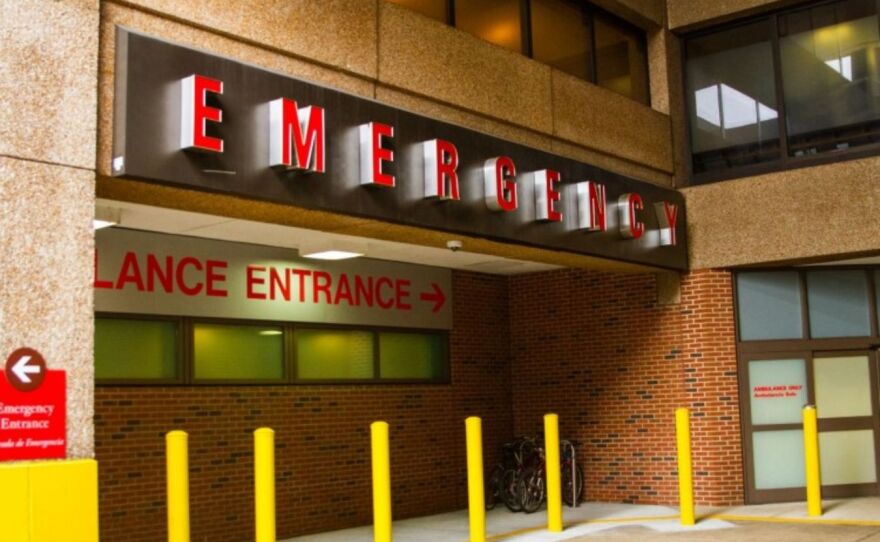Preliminary data from the Virginia Department of Health shows a huge increase in fatal drug overdoses in 2020.
A report released by the VDH this January found that 1,626 overdoses occurred statewide in 2019, the largest annual total in Virginia's history. Prescription opioid overdoses did not see a significant increase, but drugs containing fentanyl, a powerful opioid which is fatal at lower doses, contributed to 59% of all overdoses in 2019.
Although Virginia’s substance abuse deaths have increased steadily year to year, the pandemic likely accelerated that process. According to the VDH report, through the first three quarters of 2020, over 1,700 Virginians died from a drug overdose.
The Journal of the American Medical Association suggests that COVID-19 may affect our mental health, behavior and substance use.
In an article published in February, researchers studied almost 190 million emergency hospital visits between March and October in 2020. What researchers found is that although visits to the emergency room decreased, hospital visits for abuse, sucide, mental health conditions and drug overdoses increased significantly in comparison to the same period in 2019.
Healthcare providers who aim to aid people suffering from substance abuse disorder have seen similar increases in their work.
The Richmond Behavioral Health Authority provides various treatment services for those suffering from behavioral disorders. They enroll people in recovery and prevention services all over the commonwealth.
RBHA Chief Operating Officer Jim May says the organization is tracking the increase of overdes across the state. According to May, RBHA’s drug recovery program received a spike in applicants in July, August and September of 2020.
“Those of us that are in the treatment field, one the biggest indicators for us is how many people are applying for treatment,” May said.
RBHA’s NorthTreatment campus saw a rise in referrals from 28.9 per month in 2019 to 74 per month in 2020. The increase is partly due to RBHA being one of the only treatment facilities still operating amidst the pandemic.
“One of the things that we monitored, even while we were making our own plans as an organization to shift and adapt to this new environment, was what were the other organizations who provide those kinds of services doing,” May said.
Many of those services shutdown at the start of the pandemic Although RBHA was able to provide a safety net, they also had to adhere to new protocols because of the coronavirus.
Typically, they allow people to share rooms but because of COVID, their treatment beds were cut in half. May claims the North Campus went from 150 beds to 70-75.
RHBA also transferred a lot of their in-person services to telehealth programs.Dr. Neal Masri, RBHA’s evaluation program supervisor, said that provided another challenge.
“Many of us, some of us, are fortunate to have high-speed internet at home. A lot of the people we serve don't have that,” Masri said. “As a matter of fact, a lot of people we serve don't have computers. Most of them do have phones, and that's their computer. That is their link to the internet.”
Having patients adjust to telehealth services was another hurdle, however RBHA was able to set up in-person services safely at their main offices, where people could speak with a clinician, make appointments and get the help they needed.
The good news is, after making those adjustments, telehealth has increased participation.
“We're actually serving more people today, through telehealth and outpatient services, than we were pre-COVID,” May said.
Coronavirus also changed the way people connect and the culture surrounding recovery.
“People were very much in the habit of going to meetings,” May said. “Some people go to meetings every day. Some people go to multiple meetings every day. Some people go to meetings once a week, but there's a routine to it. There's a routinization of, you know, the part of your life now that's helping you stay clean and sober.”
Rehabilitation isn’t the only aspect of drug prevention. Colin King, a mental health counselor at Health Brigade, helps coordinate the organization’s needle exchange program.
Health Brigade’s mobile clinic targets communities most affected by substance abuse by providing overdose reversal drugs and needles for drug users to prevent the spread of transferable diseases, like HIV.
King says he’s seen an increase in participants, but it’s hard to determine whether or not the pandemic played a role or if the increase falls in line with statewide trends.
“I think that it's probably both,” King said. “But yeah, we have seen an increase in participation and also interacting with folks. We hear these things all the time. We’ve heard and talked to folks more about the increase in those kinds of unstable conditions that have just been amplified in the pandemic.”
Isolation, housing insecurity, unemployment and access to naloxone or NARCAN, the overdose reversal medication, all play a role in substance abuse disorder. King says the mobile clinic has tried it’s best to respond to those conditions by providing masks, hand sanitizer, food and winter clothes.
“So we've tried to also just respond to general community needs as well, as best as we can with the resources we have.”
Health Brigade also increased its supply of NARCAN and fentanyl test strips. According to King, in October through December, the mobile clinic distributed 830 Naloxone kits and reported reversing 236 overdoses.
Supply distribution is just one aspect of harm reduction. King says in order to prevent overdose, the culture around substance abuse needs to change.
“Historically, and currently, what we do is stigmatize and criminalize substance use,” he said. “I think that those things are directly correlated to the conditions that happen within a pandemic, but also how overdose happens.”
King says prevention is more than providing access to supplies, it means addressing the conditions created by the war on illicit drugs.
The conditions that affect substance abuse disorder have been affected by the pandemic. However harm reduction services and recovery programs continue to expand and adapt to the needs of the community and prevent fatal outcomes.



